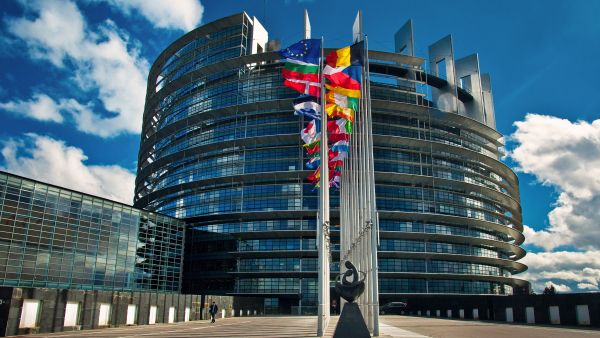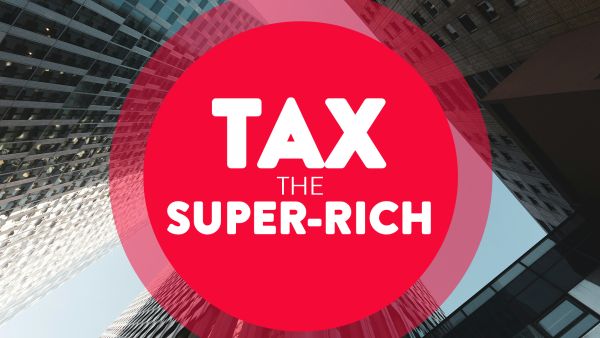In this afternoon’s plenary debate with Commissioner Paolo Gentiloni on the Commission’s plans for a business taxation framework, expected to be presented today, the Socialists and Democrats will call on the Commission to prioritise a common EU corporate tax rulebook. For years, the S&D Group has also led the drive in the European Parliament for a minimum effective tax rate to fight tax competition and aggressive tax planning. Only last week, S&D MEP Aurore Lalucq presented her parliamentary report on reforming the EU’s policy on harmful tax practices calling for the fair taxation of multinationals and updates to the tax rules for the digital economy, in line with the numerous proposals set to be announced today by the Commission.
Aurore Lalucq, S&D MEP, spokesperson on tax matters and author of a parliamentary report on business taxation, said:
“Our broken tax system jeopardises social justice, our recovery and above all our democracies. The EU loses €160-190 billion every year due to corporate tax avoidance and we must plug this hole urgently. Coming out of the Covid-19 pandemic, Europeans need sufficient resources to finance a speedy recovery. We must put a stop to this ‘beggar thy neighbour’ attitude of EU countries, a blow to solidarity between our countries and within our societies. Instead of enabling countries to aggressively compete with each other and induce multinationals to shop around for the lowest tax rate, we must jointly ensure that an effective minimum tax rate applies to all companies, big and small, and that profits are taxed where they are made.
“Our weapons of choice for tax justice are: Firstly, an effective minimum tax rate to put a floor to tax competition. Secondly, a tax back right to allow countries to collect taxes when other countries fail to do so, which would effectively dry out the tax havens. Thirdly, ensuring digital giants pay taxes based on the profits they made in each country, regardless of their physical presence. We call on the Commission and on EU governments to throw their full weight behind these tax justice goals during the final phase of the tax-reform negotiations within the OECD and implement them at EU level through a common EU corporate tax rulebook. It´s time to delivers on citizens’ hopes for tax justice.”
Jonás Fernández, S&D MEP and spokesperson for economic and monetary affairs, said:
“Taxation stands at a crossroads: the decisions we take now on taxation will shape our society for years to come. To combat harmful tax competition and aggressive tax planning, we need a common EU rulebook on corporate tax that will ensure taxes are fairly distributed across companies and countries. To reach this goal, the rules set out to calculate the tax base must look at the amount of sales, the number of employees and the size of tangible assets. The recent progress made at a global level on tax, together with the new proposals coming from the US administration, are new incentives for the EU to deliver on the definition of a common tax base that has been awaited for a decade.
“Transparency is crucial for tax justice. The S&Ds applaud the Commission’s intention to require large companies to disclose the corporate tax effectively paid by companies relative to their profits and believes it will strongly dis-incentivise profit shifting, shed a light on the unequal tax burden carried by SMEs and big corporations, and pressurise big multinationals into finally accepting their tax responsibilities towards the societies they operate in.
“Taxation also plays a crucial role in mastering the green and digital transformations while leaving no one behind. Making our tax system fit for the future requires us to move away from taxing labour, which currently accounts for 50% of tax revenue, towards taxing property, currently only accounting for 5%. An imbalance that needs correcting as cutting taxes on labour has the greatest growth and job creation potential, while under-taxing capital and wealth accumulation only further entrenches already deep-seated inequalities. Furthermore, making polluters pay through well-designed environmental taxes will support the green transition and compensate for much-needed labour tax cuts.”
Note to the editor:
*The OECD negotiations ‘Inclusive Framework on Profit Shifting and Base Erosion’ have been broken into two parts, the so-called Pillar 1 and Pillar 2. Pillar 1 aims at re-allocating taxation rights and redefining taxation rights, while Pillar 2 aims at establishing a global effective minimum tax rate. Negotiations have been ongoing for almost a decade. US President Biden’s proposal and pledge to actively re-engage in the negotiations has brought new impetus.
Harmful tax practices refer to measures put in place by states to compete with other states via preferential tax regimes or tax incentives which are isolated from the domestic economy, or tax advantages granted even in the absence of any real economic activity in their territory.
Aggressive tax planning means the deliberate exploitation of loopholes and mismatches within and between national tax systems to artificially reduce the tax contribution of companies, particularly multinational corporations, to national tax systems.
Find out more about the S&Ds' fight for tax justice now










